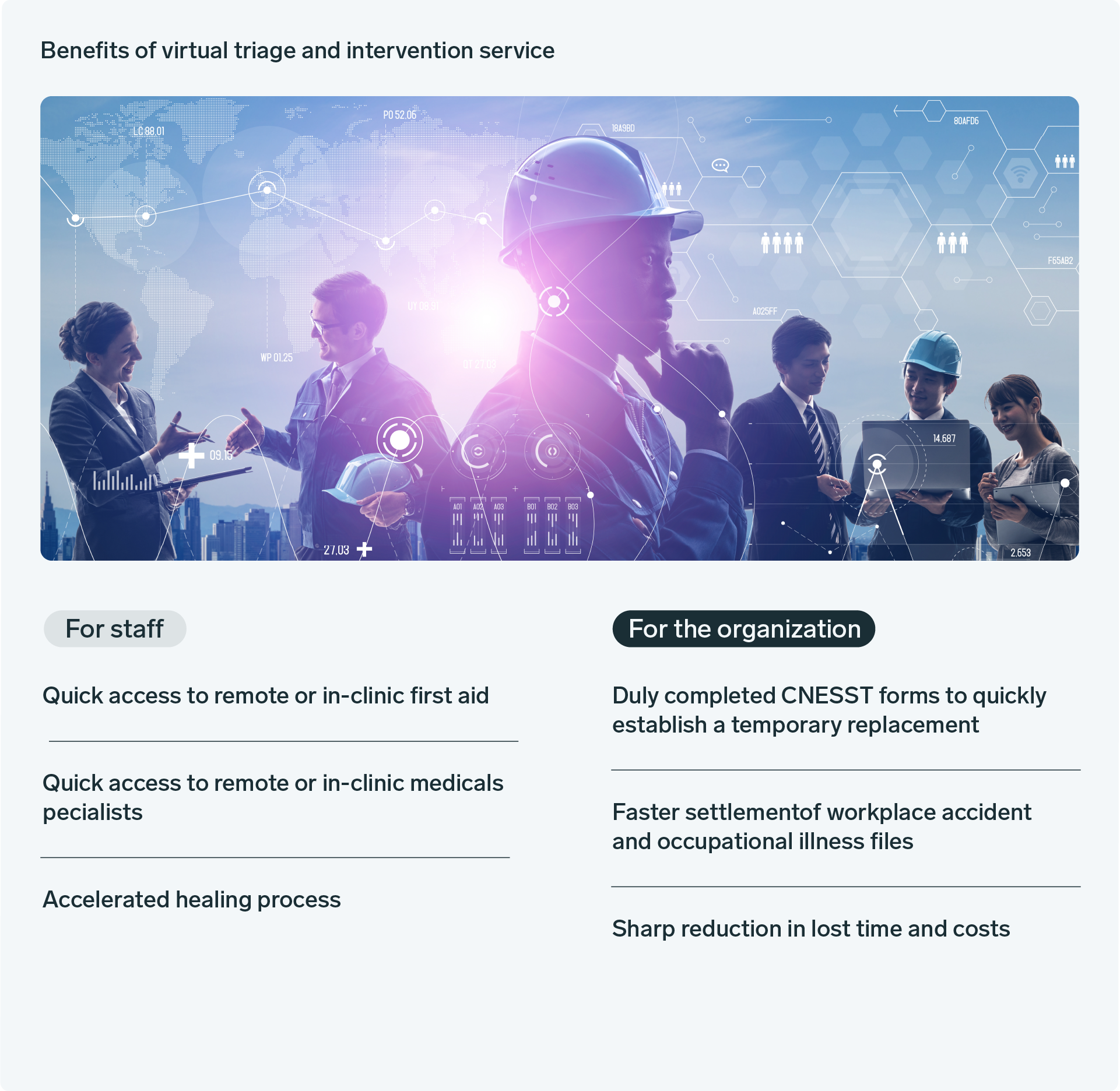Education Center — 6 minutes
Foreign workers and OHS: Room for improvement
The arduous nature of the work, demographic decline and labour shortages are prompting companies in certain sectors to recruit more and more temporary foreign workers. The number of such workers in Quebec is increasing significantly each year, and this trend is not about to reverse itself. For employers, this means a host of procedures related to claims management as well as worker training and onboarding. But what about occupational health and safety (OHS) issues?
Worrying figures

More work-related injuries among foreign workers
From 2015 to 2020, the number of workplace injuries among temporary foreign workers that the Commission des normes, de l’équité, de la santé et de la sécurité du travail (CNESST) agreed to compensate more than tripled while the number of foreign workers only doubled.[1]
In addition, if we compare the rate of work-related injuries among foreign workers to that of the general working population, we notice that it is higher, as well. For example, in 2020, the number of workplace injuries accepted by the CNESST was 2,176 per 21,000 temporary foreign workers, a rate of close to 10%. In the general population, it was 2.75%.[1]
Aggravating factors
According to Sylvie Gravel, a professor at UQAM who has been studying this issue, the data collected in Quebec are not sufficient to explain this disparity. However, in an exploratory study conducted in 2003, she found that the accident rate is higher among immigrant workers worldwide.[2]
Certain characteristics put them at risk of injury, such as their inexperience in the host country’s labour market, the absence of occupational health and safety laws and practices in their home country, and communication problems due to their lack of language skills in the host country.
The prevalence of work-related injuries may also be related to the type of work performed. Companies that recruit from abroad often have more strenuous jobs to fill, particularly in industries such as food processing, household services, handling and, of course, agriculture. In fact, the agricultural sector employs the majority of temporary foreign workers in Quebec: between 70% and 75%, depending on the year.[1]
Frequency and severity of occupational injuries probably underestimated

While the above-mentioned situation is far from encouraging, the actual number of work accidents could well be worse. The frequency and severity of workplace injuries are most likely underestimated, as under-reporting of injuries is a recurring problem among workers in precarious situations. There are a variety of reasons why foreign workers fail to report an incident at work.
Lack of knowledge of Quebec laws
Temporary workers are not always aware of the laws governing work in Quebec, including the Act respecting occupational health and safety. When an injury occurs, they are very often unaware that they can report it. Depending on their country of origin, they may be accustomed to having their employer handle the reporting of workplace accidents.
In addition, Quebec is one of the only provinces in Canada where the reporting of a workplace accident is the responsibility of the employee. In Ontario, for example, this responsibility falls to the employer, which can be heavily penalized for a failure to report.
Workers may also intentionally conceal a workplace injury for fear of medical costs, lost time or termination.
The language barrier
In 2019, nearly 80% of foreign workers who had a work permit in Quebec spoke neither French nor English.[3] This language issue sometimes prevents them from understanding safety instructions and the procedures to follow in the event of an incident.
This situation can also create communication problems during an accident. The language barrier can delay their access to appropriate medical care and make their situation worse. Finding interpreters or turning to associations for help can also complicate the care of injured workers.
Solutions to consider

For companies, occupational health and safety deficiencies among foreign workers have an impact on their operations and competitiveness.
An employee’s absence or injury inevitably hurts the company’s productivity. What’s more, higher insurance rates due to increased workplace injuries can have a significant financial impact.
The importance of support
To protect themselves from these consequences and provide better support to foreign workers, businesses facing these issues should communicate their OHS policies more effectively by organizing information sessions on labour laws, raising awareness of preventive practices and facilitating access to adapted resources in the event of an incident.
By knowing their rights, employees will be more attentive to these issues and more comfortable reporting incidents. In addition, a better understanding of the risks associated with their jobs will help them prevent further injuries and accidents.
Workers should also be aware of the procedures to follow in the event of an accident to reduce the risk of lasting damage. Finally, if a work-related injury occurs, they should be able to take advantage of adequate support from internal or external resources, particularly in a language they understand.
It is in a company’s best interest to support its workers appropriately, for the following reasons:
- It demonstrates its concern for its employees’ well-being.
- It preserves the employer’s brand and public image.
- It reduces its insurance premiums.
- It avoids lost productivity associated with workplace accidents.
For professional support, we’re here for you.
Biron’s nurse triage service now offers interpreter assistance thanks to its partnership with Voyce. This translation service, available in more than 240 languages and dialects, helps overcome language barriers to establish an accurate diagnosis and promote a quicker return to work. Request a quote or information online, or call our specialized occupational health staff at 1 833 590-2716.

Sources3
- Champagne, Sarah R. “De plus en plus de travailleurs étrangers se blessent à l’ouvrage au Québec,” Le Devoir, September 17, 2021, https://www.ledevoir.com/societe/632961/de-plus-en-plus-de-travailleurs-etrangers-se-blessent-a-l-ouvrage-au-quebec
- Gravel, S., L. Boucheron, M. Kane. “La santé et la sécurité au travail des travailleurs immigrants à Montréal : résultats d’une enquête exploratoire,” Perspectives interdisciplinaires sur le travail et la santé, Vol. 5, No. 1, May 2003, http://journals.openedition.org/pistes/3347
- Ministère de l’Immigration, de la Francisation et de l’Intégration. L’immigration temporaire au Québec – 2014-2019, Service de la recherche, de la statistique et de la veille, MIFI, November 2020, 49 p., http://www.mifi.gouv.qc.ca/publications/fr/recherches-statistiques/Portraits_Immigration_Temporaire_2014_2019.pdf


